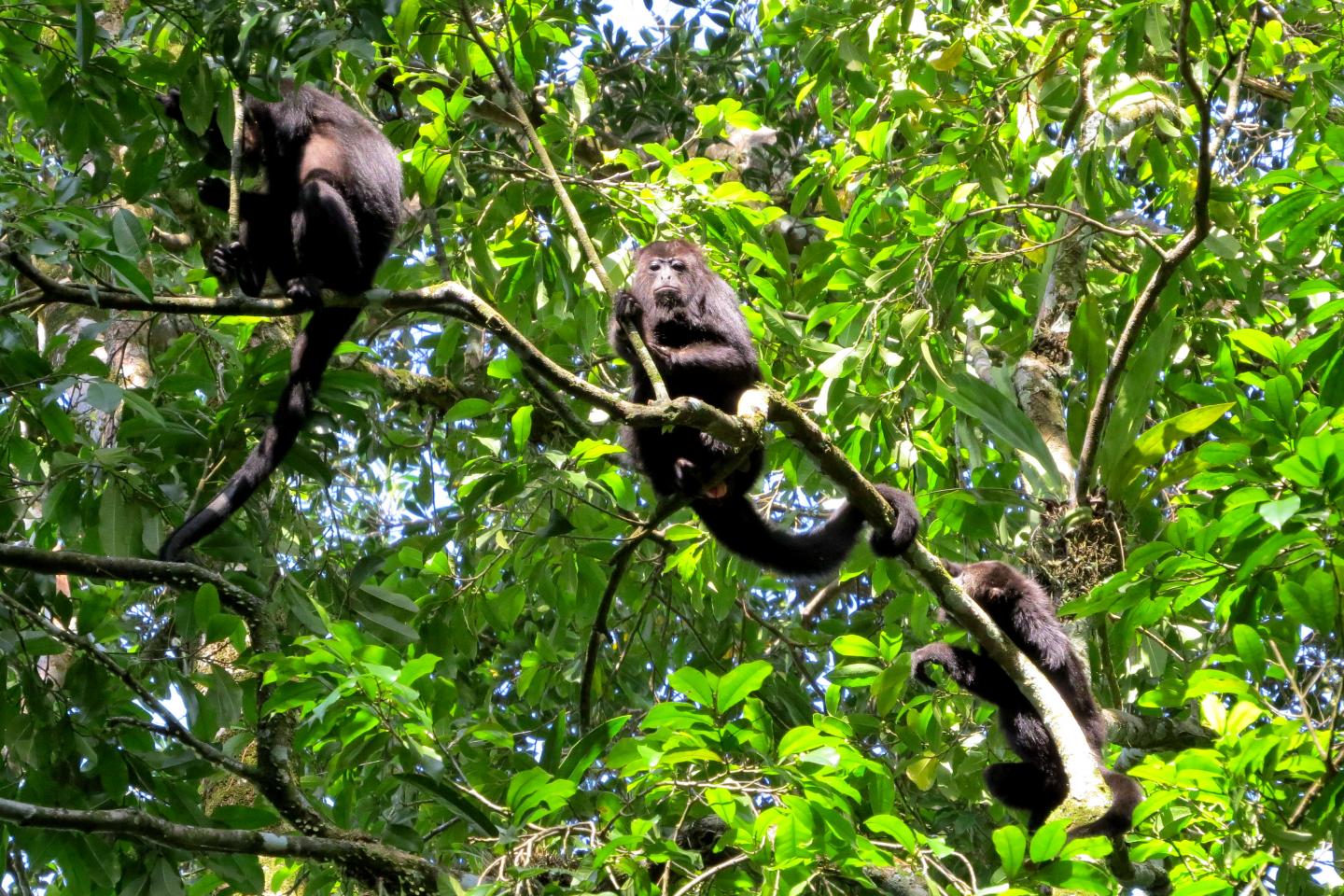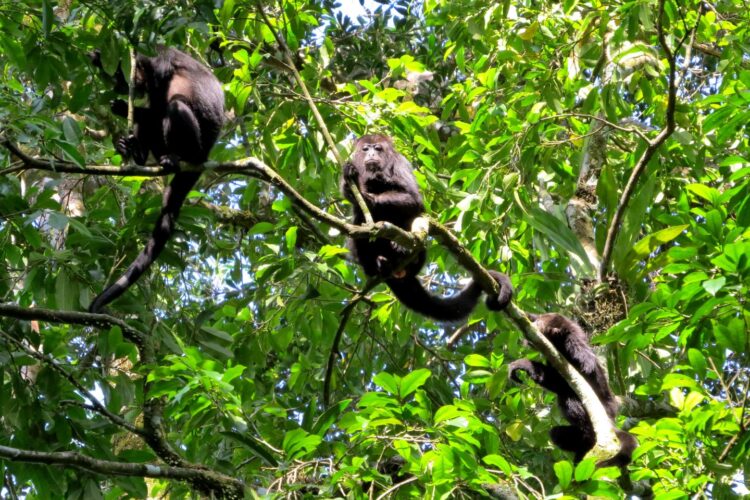Researchers uncover advanced skills of black howler monkeys

Credit: Dallas Levey
An international team of researchers led by Oxford Brookes University shows that black howler monkeys in Mexico not only remember where important events took place in their habitat, but also when to return to such locations.
The researchers recorded the behaviour of five groups of black howler monkeys accumulating over 3,000 hours of field observations at Palenque National Park, southern Mexico.
Expert fruit foragers
Black howler monkeys were observed navigating deliberately towards out of sight fruit trees that were ripening. Fruit is a desired food by many animals in rainforests so being able to anticipate when fruit is going to be available and where, is a great strategy to forage ahead of competitors. The monkeys selected a small subset of fruit trees with easy-to-remember ripening cycles – showing, like humans, a tendency to minimise information processed during navigation.
Lead researcher Dr Miguel de Guinea expert in Evolutionary Anthropology, Oxford Brookes University said: “In the same way that we remember the location of our favourite restaurants, primates remember the locations of their favourite fruit trees in rainforests. But there is a clear difference: fruit trees, instead of following established opening hours, can produce fruit at different times of the year during very specific windows. It is fascinating and impressive that a relatively small-brained primate can memorise the ripening patterns of many different trees and anticipate the emergence of fruits.”
Vocal warning at set locations to ward off rival troops
The research found that black howler monkeys travelled in long, straight lines, before reaching a location where they had previously encountered a neighbouring troop. After reaching these locations, the monkeys used loud calls to warn neighbouring primate groups of their territorial range. The groups of monkeys started travelling in a completely different direction afterwards, indicating that they purposely navigate to these set locations.
Co-researcher Dr Sarie Van Belle from the University of Texas at Austin, USA commented: “We already know that in howler monkeys, loud vocalisation plays a central role in defending their home ranges. With this study, we have learned that they return to areas where neighbouring groups had breached the home range border, to vocally announce that the area was occupied.”
###
You can read an abstract of the paper from the journal Animal Behaviour: Disentangling the importance of social and ecological information in goal-directed movements in a wild primate
Find out more about Primate Conservation in the Oxford Brookes University School of Social Sciences
Pictured: Group of howler monkeys feeding by Dallas Levey
Media Contact
Pauline Brandt
[email protected]
Original Source
https:/





